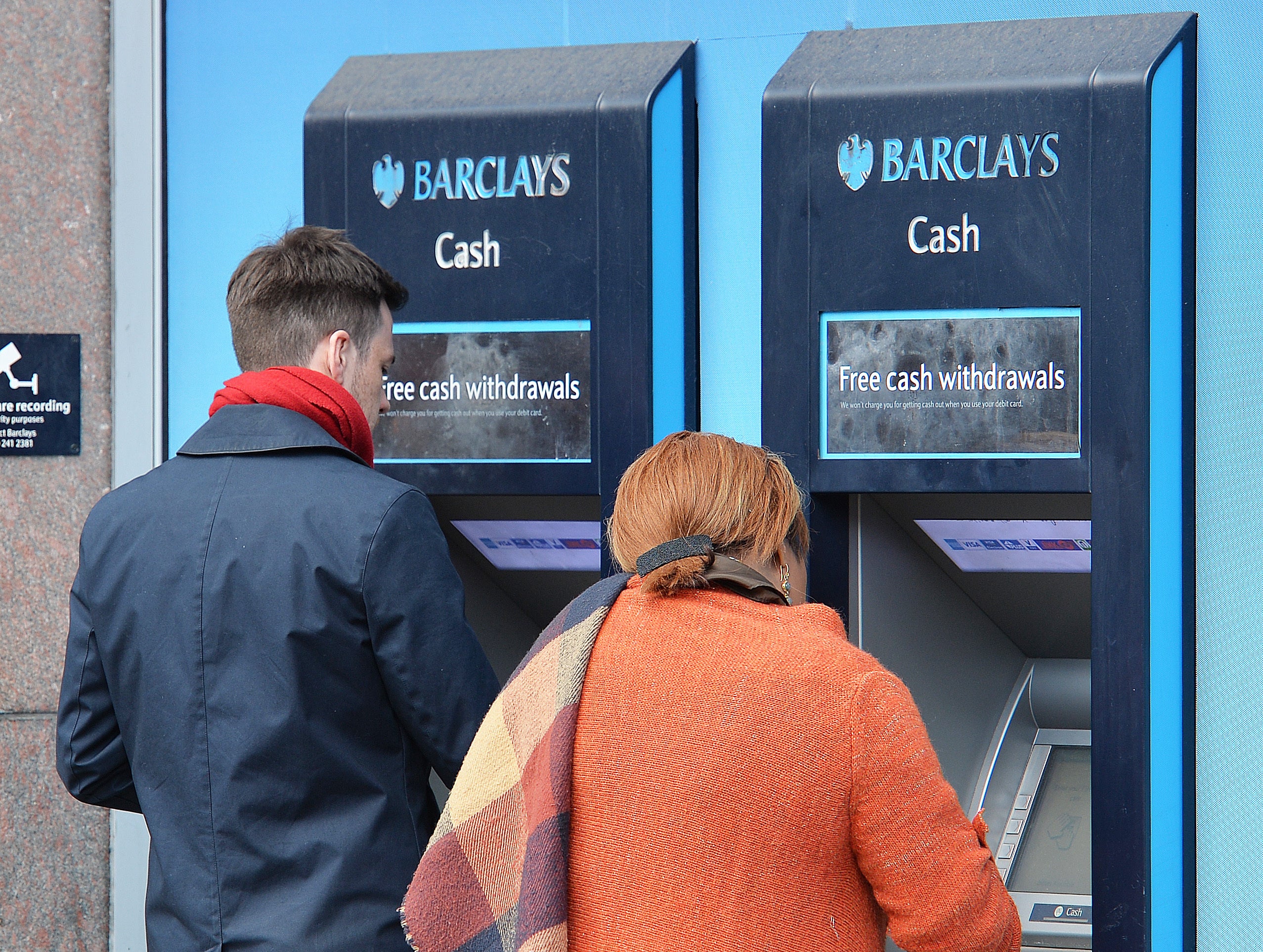Major banks and others join forces to help ensure future access to cash
Barclays, HSBC UK, Lloyds Banking Group, Nationwide Building Society, NatWest, Santander UK, TSB and Danske Bank have agreed to the new approach.

Major banks have agreed to join forces and share services to help people and businesses continue to be able to access cash.
Barclays, HSBC UK, Lloyds Banking Group Nationwide Building Society NatWest, Santander UK TSB and Danske Bank have agreed to the new approach, with some other firms also considering joining up.
The collaboration, achieved through the Access to Cash Action Group (CAG), signals a long-term commitment to ensuring widespread cash and banking access for communities where services are limited.
It means that, from Wednesday, if a bank involved in the initiative decides to close a branch, it will inform ATM network Link.
Link will independently assess what the closure means for cash provision, looking at the community as a whole, including its residents and businesses. It will consider whether a new solution is needed.
If, for example, there are no bank branches remaining, Link could consider whether there is a local Post Office. It may, for example, suggest a refurbished Post Office branch or a bank hub.
Bank hubs involve banks working jointly to offer basic cash services on high streets, with spaces for people to speak to their own bank. Each bank may offer its own services from a hub, on different days of the week.
Communities will also be able to request a review of their community’s needs from the summer of 2022.
Cash use is still around 35% below pre-Covid-19 levels, those behind the initiative said. But millions of people across the UK still use cash daily and many businesses need places to withdraw and deposit it.
Link has already assessed most communities where closures have taken place over the past year and new services are planned for 2022.
These include 11 free-to-use ATMs in Betchworth (Surrey), Bo’ness (West Lothian), Brentwood (Essex), Hugh Town (Isles of Scilly), Low Fell (Tyne and Wear), Merthyr Vale (Mid Glamorgan), Mosborough (South Yorkshire), Norwich (Norfolk), Putney (London), Woolhampton (Berkshire), and Woodbury (Devon).
The Post Office is also ready to deliver new and improved, dedicated cash services in up to 30 branches, those behind the initiative said.
The Post Office already has an agreement with many banks which allows customers to do their everyday banking over its counters.
And there are plans for shared banking hubs in Acton (West London), Brixham (Devon), Carnoustie (Angus), Knaresborough (North Yorkshire) and Syston (Leicestershire), building on the experience of the existing hubs piloted in Rochford, Essex and Cambuslang, South Lanarkshire.
The new shared services will run alongside other industry initiatives to support cash, such as “cashback without purchase” which is being rolled out to 2,000 retailers by the end of 2021, mobile branches and pop-up services, as well as services for people needing to make payments in their own homes.
Natalie Ceeney, chair of CAG, said: “I’m delighted that the industry is today committing to ensuring that the cash needs of consumers and small businesses up and down the UK will continue to be met.
“We know that demand for cash is declining, but we also know that it continues to play a vital part in the lives of at least five million people in the UK – including some of the most vulnerable in society.”
She added: “I’m confident that the new plan will lay the foundations for a positive future for cash access across the UK.”
Caroline Abrahams, from Age UK, said: “This is arguably the most promising development we’ve yet seen in ensuring that older people can continue to access cash.”
The UK Government has said it will legislate to protect the future of cash.
John Glen, Economic Secretary to the Treasury, said: “Access to cash has ongoing importance to the daily lives of millions of people across the UK, and protecting it is a priority for myself and this Government.”
David Postings, chief executive of trade association UK Finance, which is also involved in the drive to keep cash widely available, said: “The banking and finance industry is committed to maintaining access to cash for people who need it, when they need it.
“UK Finance is delighted to have played a key role in the work, which has led to today’s announcement of a collective commitment to meet the needs of both personal and business customers who rely on cash.”
Nick Read, group chief executive, Post Office, said: “It is very positive that the Post Office and banks continue to work together effectively to deal with such a fundamental issue.”
John Howells, chief executive, Link, said: “The UK is not ready to be a cashless society and free access to cash remains vital for many consumers and communities.”
Federation of Small Businesses (FSB) national vice chair Martin McTague said: “It’s important that the new assessments of need outlined today are independent and fair – we’ll be watching their progress closely.”
He added: “Shared banking spaces will be fundamental to protecting access to cash in the coming years, alongside a bolstered role for the Post Office in providing local banking services.
“Cashback without purchase will no doubt have an important part to play too. It’s vital that the incentives to offer this service fully take account of the demands placed on businesses which provide it.”
Anabel Hoult, Which? chief executive, said: “Which? called on banks to do more to protect access to cash, and pause their branch closure plans until solutions are in place, so it’s good to see proposals put forward that could make a real difference in securing the future of cash.
“The banks will now need to demonstrate that these measures deliver what is needed, and we will be watching closely to see the extent to which they prevent communities from losing access to cash.”
Bookmark popover
Removed from bookmarks